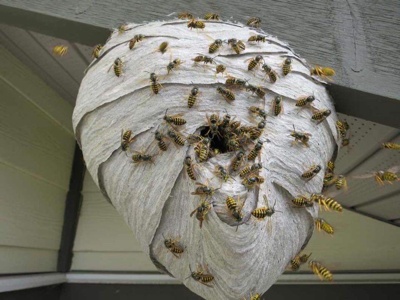News
Pest Spotlight - Wasps (Vespula Germanica)

Vespula germanica, which is commonly known as the German wasp, is a highly aggressive and territorial species of wasp that is found in many parts of the world. It is a social wasp and lives in large colonies, with a queen at the head of the group and many worker wasps supporting her.
The wasp's body is black with bright yellow stripes. Like all wasps, it has a stinger that it uses for defence and to capture prey. German wasps are well-known for their aggressive behaviour, especially when their nests are disturbed. They will often attack in large numbers, stinging their victim repeatedly. This can be very dangerous, especially for people who are allergic to wasp venom.
German wasps can also be a nuisance at picnics or outdoor events, where they are attracted to sweet foods and drinks. Despite their reputation, German wasps do serve several important roles in the ecosystem. They are important predators of other insects, including caterpillars and other pests that can damage crops. They also play a role in pollination, helping to transfer pollen from one plant to another.
If you encounter a German wasp or its nest, it is best to stay away and contact a professional wasps nest removal service. While they do have their benefits, their aggressive behaviour can make them a danger to humans. With proper precautions, however, we can coexist with these insects and appreciate the role they play in keeping our ecosystems functioning properly.


